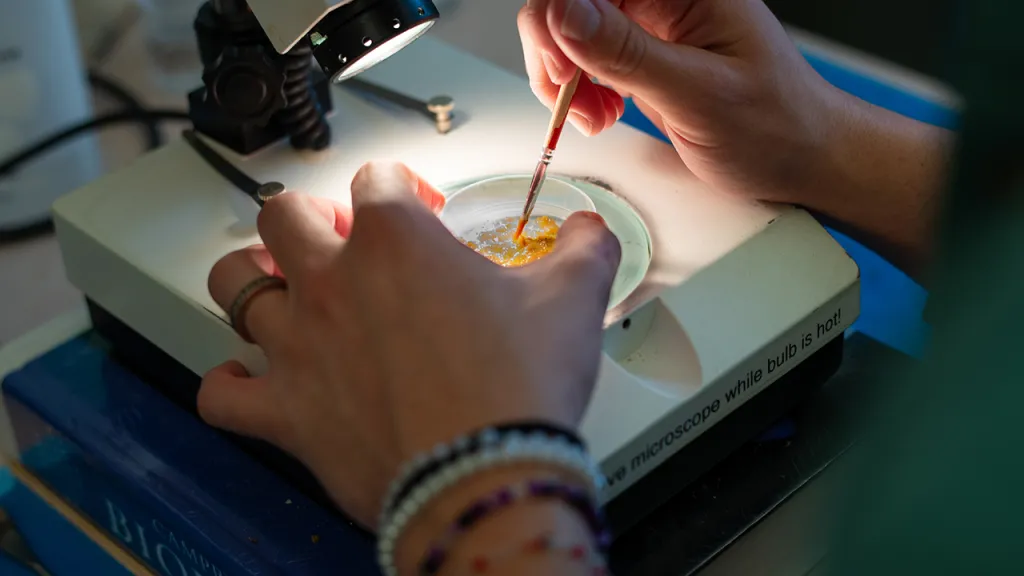Participate in Research
The below laboratories are currently accepting undergraduate and graduate students.
Becker Lab

Kathleen A. Becker, Ph.D.
Assistant Professor
College of Osteopathic Medicine, Department of Biomedical Sciences
Research Interests
Aging and Geriatrics; Cancer and Metabolic Disease
The Becker lab focuses on the role of cell signaling proteins in the osteoblast and the impact of peripheral nerve injury on bone formation. The overall goal of this research is to identify new therapeutic strategies for the treatment of osteoporosis and prevention of morbidity and mortality associated with fracture.
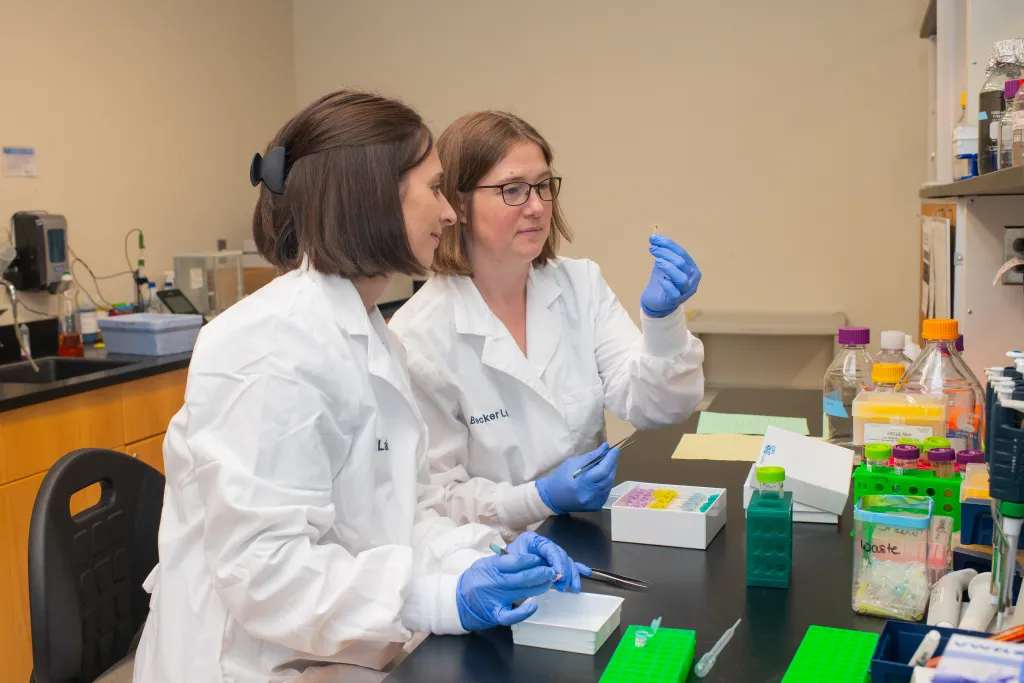
Burman Lab

Michael A. Burman, Ph.D.
Director, School of Social and Behavioral Sciences
Professor, College of Arts and Sciences
Research Interests
Neuroscience and Pain
The Burman Lab investigates the effects of early life stress and pain on subsequent anxiety and pain susceptibility and related changes to brain function in a rodent model. They focus on the amygdala, hippocampus, hypothalamus, and prefrontal cortex using a variety of modern behavioral, pharmacological, and molecular techniques from psychology and biology.
Can We Reduce the Effects of Neonatal Trauma on the Brain?
Cao Lab

Ling Cao, M.D., Ph.D.
Professor, College of Osteopathic Medicine, Department of Biomedical Sciences
Director, In Vitro Analytic Core
Research Interests
Immunology and Infectious Disease; Neuroscience and Pain; Medical and Interprofessional Education
The Cao Lab studies neuroimmune mechanisms in nerve injury-induced neuropathic pain and nerve regeneration, as well as neuroimmune mechanisms in HIV-associated peripheral neuropathy, and neuroimmune mechanisms in HIV-associated neurocognitive disorders (HANDs). Dr. Cao also has ongoing clinical projects for medical students, which are in collaboration with the Mercy Pain Center.
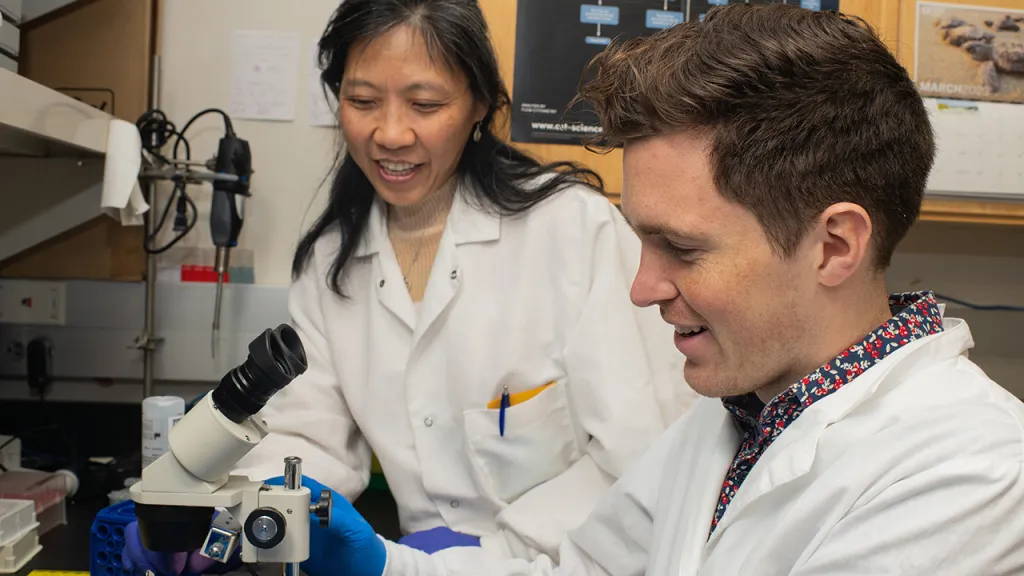
Ganter Lab

Geoffrey K. Ganter, Ph.D.
Director, Histology and Imaging Core
Professor, College of Arts and Sciences, School of Biological Sciences
Goode Lab

Diana J. Goode, Ph.D.
Associate Professor, College of Osteopathic Medicine, Department of Biomedical Sciences
Research Interests
Neuroscience and Pain; Immunology and Infectious Disease
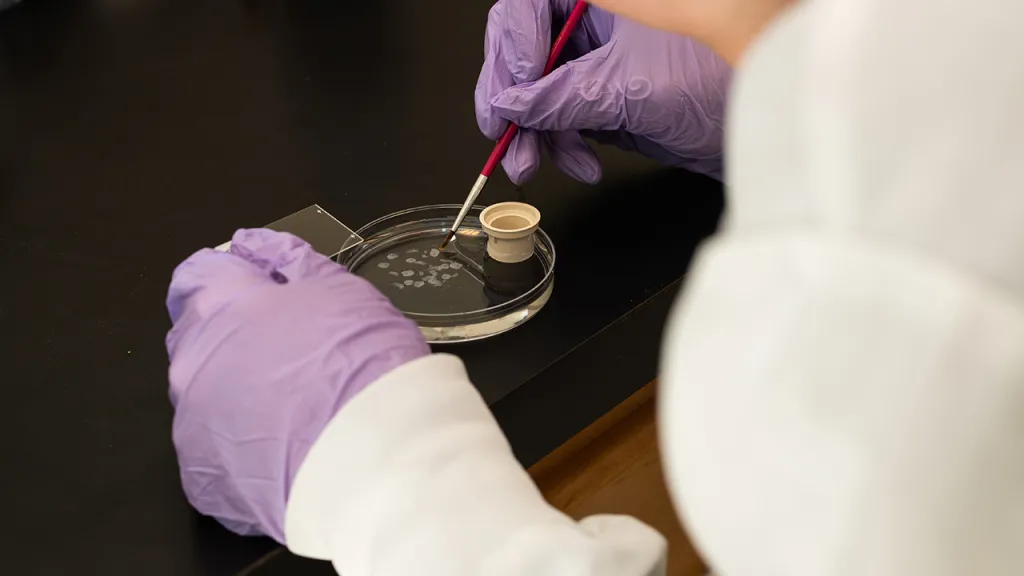
Harrison Lab

Ben Harrison, Ph.D.
Associate Professor, College of Osteopathic Medicine, Department of Biomedical Sciences
Houseknecht Lab

Karen L. Houseknecht, B.S., M.S., Ph.D.
Professor of Pharmacology, College of Osteopathic Medicine: Department of Biomedical Sciences
Interim Director Girard Marine Science Center, School of Marine and Environmental Programs
Dr. Houseknecht has expertise in the pharmacology of G-protein coupled receptors and phosphdiesterases. She is interested in novel drug discovery for the treatment of diseases associated with metabolic syndrome, psychosis, and diseases of neglect.
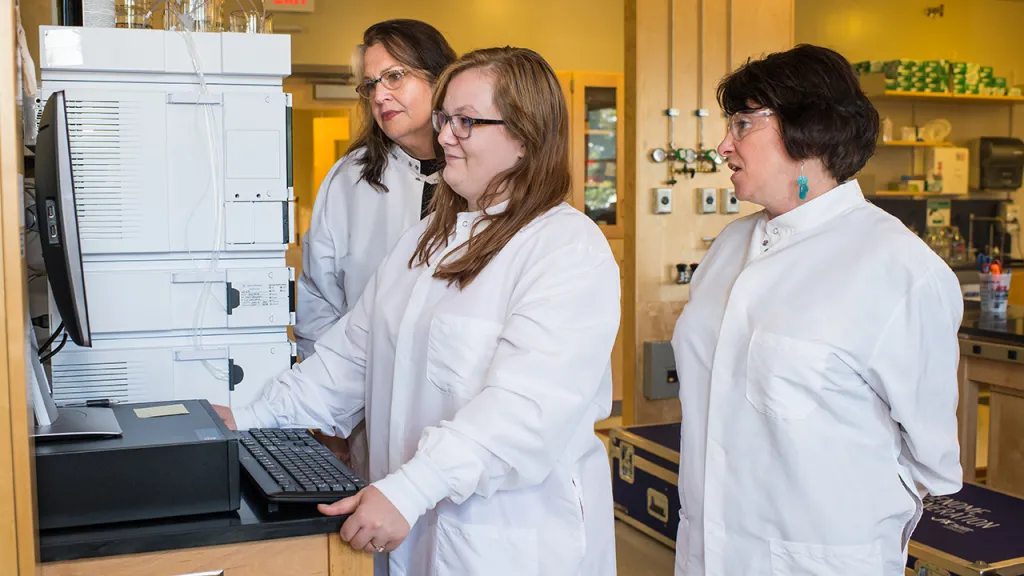
King Lab

Tamara King, Ph.D.
Professor, College of Osteopathic Medicine, Department of Biomedical Sciences
Director, Behavior Core (COBRE)
Research Interests
Neuroscience and Pain; Cancer and Metabolic Disease
Meng Lab

Ian Meng, Ph.D.
Professor, College of Osteopathic Medicine, Department of Biomedical Sciences
Professor, College of Arts and Sciences
Director, Center for Excellence in the Neurosciences
Director, Center for Pain Research
Current Meng Lab research is primarily focused on chronic dry eye syndrome.
Developing More Effective Treatments for Corneal Pain
Molliver Lab

Derek Molliver, Ph.D.
Professor, College of Osteopathic Medicine, Department of Biomedical Sciences
Director, Center for Cell Signaling Research
Research Interests
Neuroscience and Pain
Dr. Molliver’s research is focused on intracellular signaling mechanisms regulating the functional plasticity of sensory neurons in chronic pain states.

Queme Lab

Luis F. Queme, M.D., Ph.D.
Assistant Professor, College of Osteopathic Medicine: Department of Biomedical Sciences
Dr. Queme’s current NIH-funded projects focus on the role of macrophages in the development of long-lasting muscle pain using a multidisciplinary approach that combines molecular biology, ex-vivo electrophysiology and AI-driven behavioral analysis.
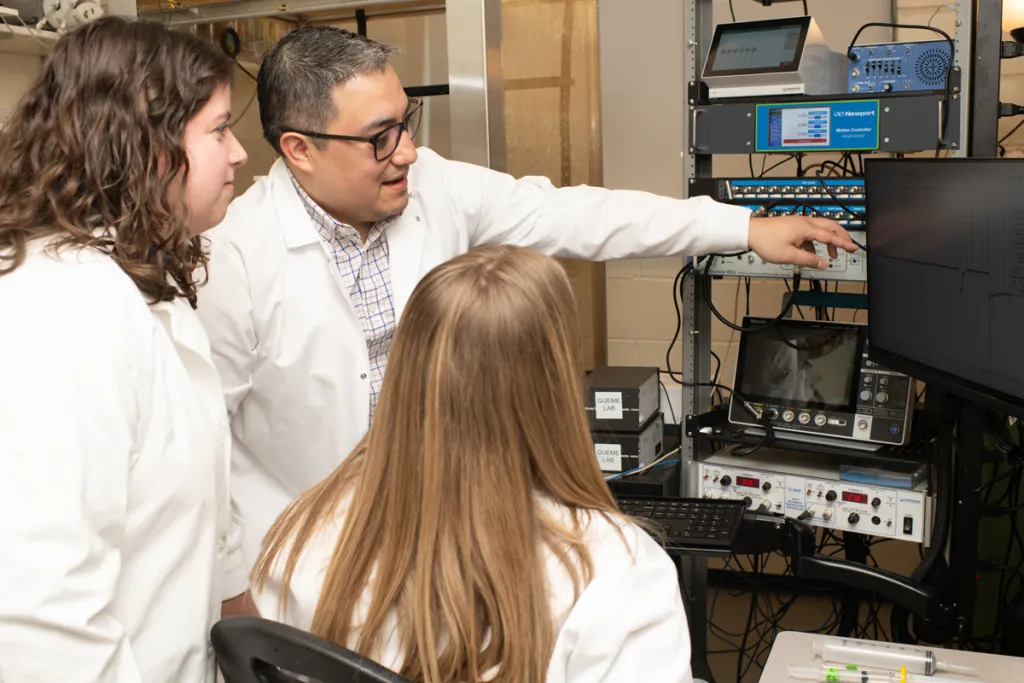
Rosene Lab

John Rosene, DPE, LAT, ATC, CSCS, ACSM EP-C
Clinical Professor, Westbrook College of Health Professions
Currently, his research investigates head impacts and their possible connection to concussions in athletics, and potential interventions to reduce these injuries.
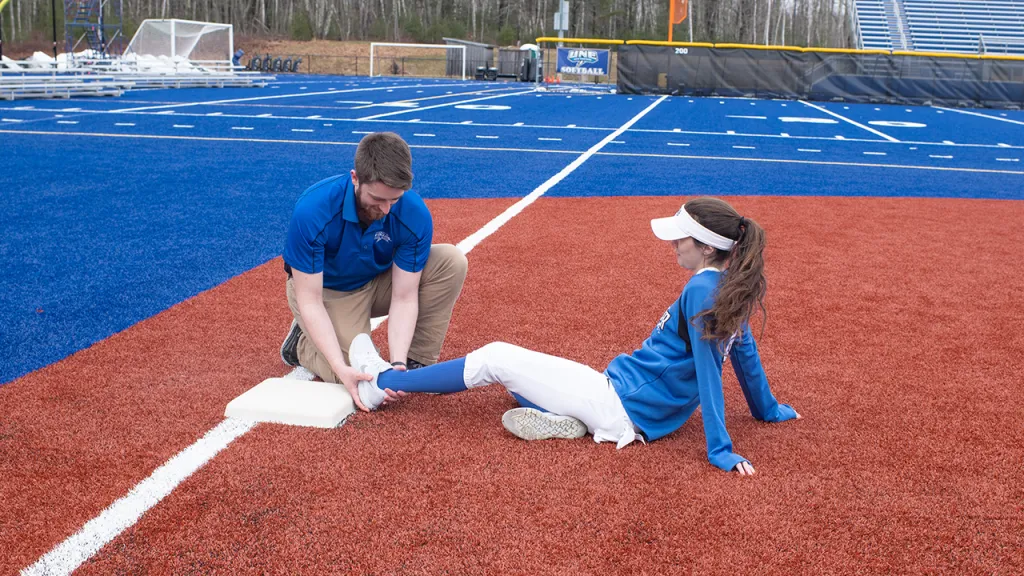
Rudolph Lab

Katherine S. Rudolph, PT, Ph.D.
Director, Motion Analysis Lab
Associate Professor, Westbrook College of Health Professions
Her research interests focus on the neuromuscular control of locomotion with studies concerning patients with ACL deficiency and knee osteoarthritis. She has expertise in rehabilitation research and motor control.
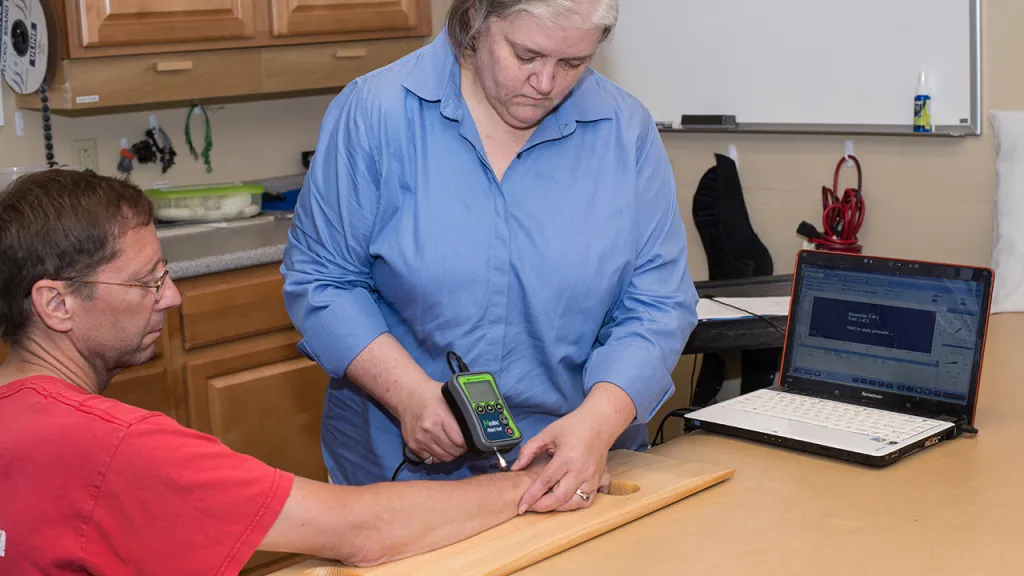
Stackhouse Lab

Scott Stackhouse, PT, Ph.D.
Associate Professor, Westbrook College of Health Professions
Dr. Stackhouse’s current research is looking at the neuromodulation of the pain system in chronic musculoskeletal conditions.
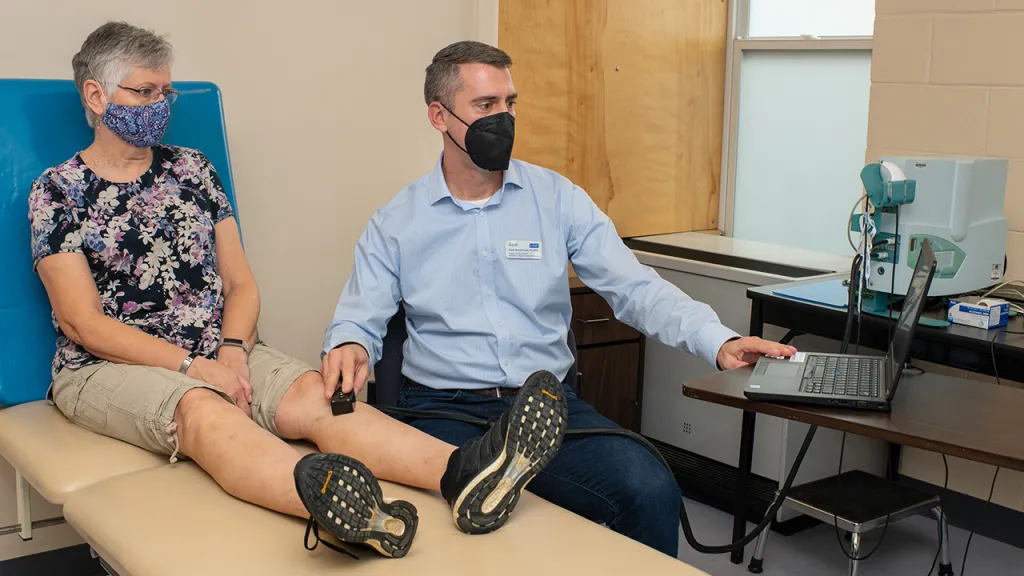
Tucker Lab

Kerry L. Tucker, Ph.D.
Associate Professor, College of Osteopathic Medicine: Department of Biomedical Sciences
His laboratory investigates the signal transduction pathways of the primary cilia, a small antenna-like appendage protruding from the cell surface of almost all cells in the body.
